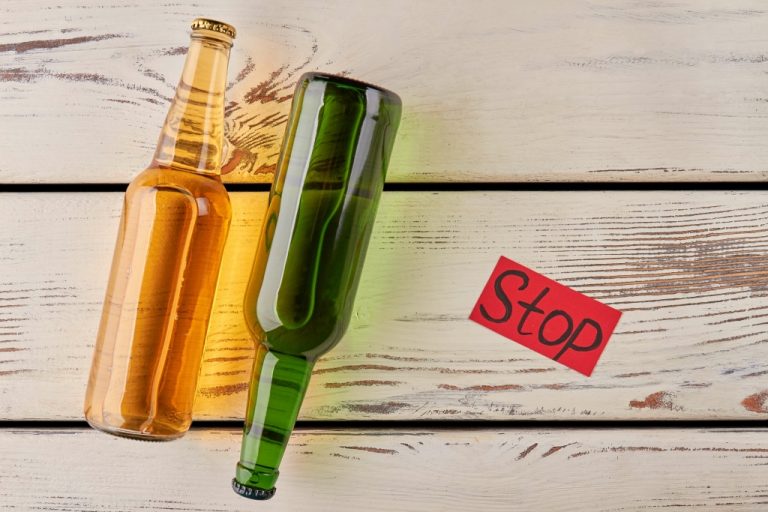You will consider the thoughts and images that went through your mind, write them down, and determine how much you believed these thoughts. Attempting to recognize and challenge our cognitive distortions can be difficult, but know that we aren’t alone in this experience. Shedding a gentle awareness onto our thoughts can be a great first step. Emotional reasoning refers to the acceptance of one’s emotions as fact. Of course, we know it isn’t reasonable to take our feelings as fact, but it is a common distortion nonetheless. The types of negativity listed above also have the tendency to turn into self-fulfilling prophecies, in all kinds of situations.
- Practicing the new healthy thought patterns learned through CBT can lead to improved actions.
- When you have listed all of the evidence you can think of, both for and against the thought, evaluate the evidence and write down the results of your evaluation in “The Judge’s Verdict” box.
- Many commonly prescribed medications for mental health disorders also affect gene expression.
Once you’ve established this step, you can then replace your old assumptions with newer and more accurate ones. How do individuals in addiction recovery reshape their thoughts from irrational distortions to positive, self-affirming thoughts? Here are four tips that can help to expose the thought errors, and help you start overcoming them. Once you have identified any of your thoughts as thinking errors, it’s time for a reality check. Ask yourself whether they are actually true and remind yourself that these cognitive distortions are known to be unrealistic, extreme and irrational.
Download Fillable Worksheet
Here, we are going to look at some ways that inaccurate thinking can more directly keep you from seeking help for addiction and sticking to your recovery plan. DBT can be especially helpful for individuals with a dual diagnosis, such as alcoholism and depression or anxiety, as it helps them learn to regulate emotions and mood swings more effectively. How do individuals in recovery reshape their thoughts from irrational distortions to positive, self-affirming thoughts? Here are some tips that can help to expose the thought errors for what they are, and to overcome them. There are several types of thinking errors that play a powerful role in substance abuse and addiction.

Maybe group therapy is a challenge or maybe you’re trying to make some healthy lifestyle changes and they just don’t seem to stick. That can be terribly frustrating but it also doesn’t Art Therapy for Addiction: Painting Paths to Recovery mean you’re comprehensively screwing up your recovery. There may be other aspects that are going really well, perhaps individual therapy or improving communication with your family.
Substance Abuse Treatment
The goal is to record how your thoughts and emotions impact your actions. The idea is to look for patterns of negative thoughts and the resulting actions. This will increase your awareness of the connection between distorted thinking and connections to substance use. There is an undeniable link between negative thinking and addictive behavior. And individuals struggling with substance abuse are particularly vulnerable to turning negative thinking into distorted thoughts.
DBT is another behavior-focused psychotherapy that is highly effective in treating individuals with a substance use disorder. Doctors cannot prescribe methadone to people to treat their opioid use disorder in their regular practices. If you have opioid use disorder and you want methadone, you have to go to a specialty clinic called an opioid treatment program. There are not a lot of these clinics because they’re so difficult to get licensing for. And that means if you’re a person with use disorder, you might have to travel up to two hours one way to get your dose.
Tips for Dealing With Anger When You’re Sober
Keep in mind that there are times in which we’re stuck in a vicious cycles of anxiety, sadness and other difficult emotions, and we might not be able to get out of them on our own. If your difficult emotions have significantly started affecting your life, get in touch with us for professional help. Our CBT trained therapists have the expertise https://g-markets.net/sober-living/the-most-common-causes-of-bruising-after-drinking-2/ to help you work with your thinking errors and negative emotions, discover more about CBT Therapy. We are all guilty of letting cognitive distortions take over our emotions and beliefs more than once. Unfortunately, these negative thinking patterns can often be so subtle we don’t notice them until someone else points them out.
- This is where the real work happens, where you identify the distortions that are cropping up and challenge them.
- Once you know how they sound, it’s easy to identify if one of your thoughts is a thinking error.
- Sometimes these rules or assumptions help us to stick to our values or our moral code, but often they can limit and frustrate us.
- For example, you might enter treatment feeling ambivalent about being there and immediately start looking for reasons to leave.
- My little addicted brain doesn’t fire those neurotransmitters properly, so my ability to feel happy, excited, relaxed, and content is deeply compromised.